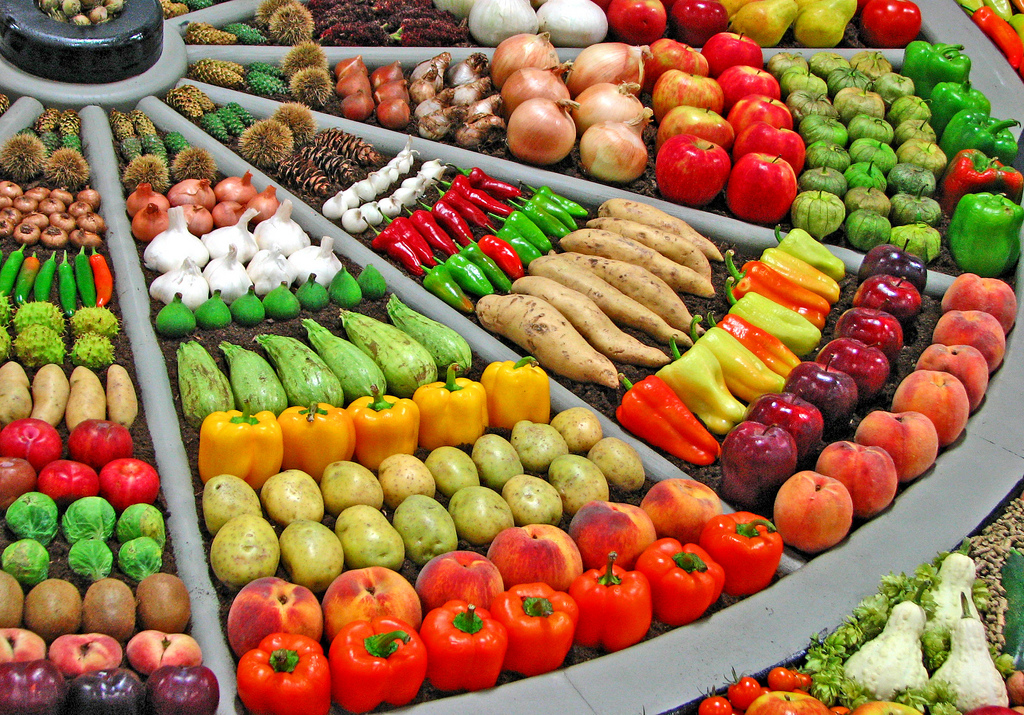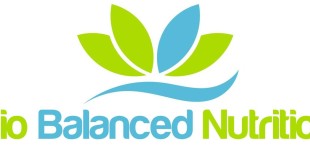
If you’re shopping on a budget it can be tempting to forego organic produce for its regular counterpart and save a little money. But not all fruits and vegetables are created equally – some contain far more pesticides and as such can have a greater adverse effect on your health should you decide to buy anything other than organic. Knowing what you absolutely must buy organic and what you may be able to get away with buying regularly is tricky. Fortunately the Environmental Working Group – a non-profit, non-partisan organisation dedicated to protecting human health and the environment – have produced and regularly update the dirty dozen and clean fifteen lists. As the name suggests the dirty dozen are those fruits and vegetables with the most pesticides whereas the clean fifteen lists the produce least likely to hold pesticide residues. Relatively few pesticides were detected on these foods, and tests found low total concentrations of pesticides.
I’ve highlighted foods that aren’t strictly Paleo with an asterisk.
The Clean Fifteen
- Avocados
- Sweet Corn*
- Pineapples
- Cabbage
- Sweet Peas – Frozen* [For more information on sweet peas and how they fit into the context of a Paleo diet please read Mark Sisson’s article: Are Peas and Green Beans Healthy?]
- Onions
- Asparagus
- Mangoes
- Papayas
- Kiwi
- Eggplant/Aubergine
- Grapefruit
- Cantaloupe/Melon
- Cauliflower
- Sweet potatoes
The Dirty Dozen
- Apples
- Strawberries
- Grapes
- Celery
- Peaches
- Spinach
- Sweet Bell Peppers
- Nectarines (imported)
- Cucumbers
- Cherry Tomatoes
- Snap Peas (imported) [technically a legume and as you know legumes are avoided on the Paleo diet, but wait Sarah Ballantyne has this to say: “Legumes with edible pods like green beans, sugar snap peas and snow peas are generally endorsed on a paleo diet because the concentration of agglutinins is low and the instability of the agglutinins in these legumes means they are typically rendered inactive by cooking.”
- Potatoes* [Please read about why potatoes are not Paleo on Loren Cordain’s The Paleo Diet website: Are Potatoes Paleo?]
Here is the complete list of foods as per the EWG’s pesticide residue testing data.
Here are some interesting facts and key points from the report’s executive summary.
- Every sample of imported nectarines and 99 percent of apple samples tested positive for at least one pesticide residue.
- The average potato had more pesticides by weight than any other food.
- A single grape sample contained 15 pesticides. Single samples of celery, cherry tomatoes, imported snap peas and strawberries showed 13 different pesticides apiece.
- Only 1 percent of avocado samples showed any detectable pesticides.
- Some 89 percent of pineapples, 82 percent of kiwi, 80 percent of papayas, 88 percent of mango and 61 percent of cantaloupe had no residues.
- No single fruit sample from the Clean Fifteen tested positive for more than 4 types of pesticides.
- Detecting multiple pesticide residues is extremely rare on Clean Fifteen vegetables. Only 5.5 percent of Clean Fifteen samples had two or more pesticides.
The report also highlights concern over buying non-organic leafy greens and hot peppers. The EWG state:
Leafy greens – kale and collard greens – and hot peppers do not meet traditional Dirty Dozen ranking criteria but were frequently contaminated with insecticides that are toxic to the human nervous system. EWG recommends that people who eat a lot of these foods buy organic instead.
For a fuller explanation please check out the expanded report: Leafy greens – kale and collards, hot peppers on the EWG website.
Of course, the EWG’s report is specifically concerned with vegetables and fruits in the US and while some of this is certainly transferrable worldwide or at least indicative of what some of the most problematic fruits and vegetables might be I wanted to explore whether there were similar reports for fruits and vegetables within the UK. Fortunately the answer is yes, the Pesticide Action Network UK have devised the Best & Worst Food for Pesticide Residues table. Here’s a summary of the best and worst fruits and vegetables
The Best Fruits and Vegetables
- Corn (cob)* [Please see Mark Sisson’s Corn Is Not a Vegetable.]
- Leeks
- Star Fruit
- Aubergines/Eggplant
- Plums
- Onions
- Ginger
- Exotic Fruits
- Chilli
- Kiwi Fruit
- Peppers
- Celery
- Spinach
- Banana
- Raspberries
- Other Berries
- Melon
The Worst Fruits and Vegetables
- Soft Citrus
- Pineapples
- Pears
- Apples
- Grapes
- Strawberries
- Peaches & Nectarines
- Tomatoes
- Apricots
- Parsnips
- Cucumber
- Carrots
- Lettuce
- Beans in a pod*
- Peas in a pod
- Sweet potatoes
- Courgettes and Marrows
- Yams
For a detailed and rather heavy report UK readers may wish to explore The Expert Committee on Pesticide Residues in Food published 10 September 2014. As you can see while there are some commonalities between the two lists – such as aubergine, onions, kiwi and melon all doing well – there are quite a lot of foods that are relatively pesticide-free in the UK but pesticide-heavy in the US and vice versa. This is why it’s so important you seek out lists in the country you’re living in with regards to the amount of pesticides traced in foods to determine what you must buy organic and what you may well get away with non-organic. It’s important, too, to look at the sample size when examining these studies and finding out where exactly the data is coming from to determine any bias or hidden agendas from those putting out the data.
If you have any reports like the Dirty Dozen, Clean Fifteen and Best & Worst Food For Pesticide Residues please share them in the comments below.
Photo Credit: Nancy D. Regan via Compfight cc
 Paleo Minds Paleo diet, fitness and lifestyle.
Paleo Minds Paleo diet, fitness and lifestyle.




